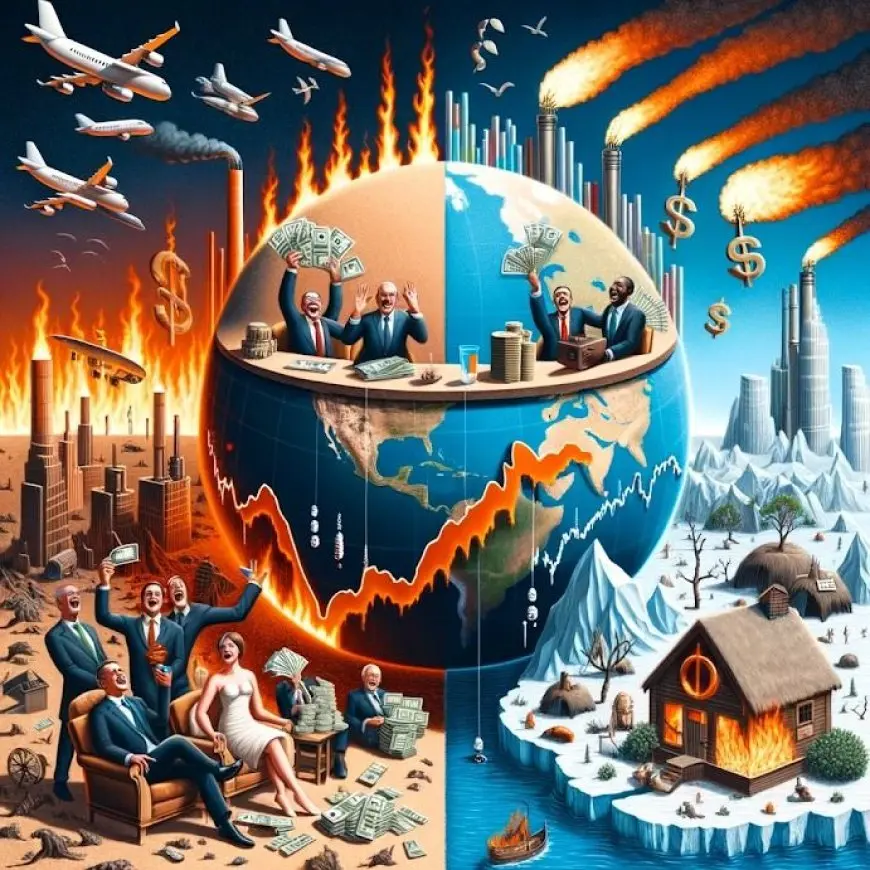The History of Fossil Fuels and Their Impact
The History of Fossil Fuels and Their Impact

Fossil fuels—coal, oil, and natural gas—have played a central role in shaping the modern world. From the industrial revolution to the present day, these energy sources have powered industries, transportation, and economies, but their widespread use has also led to significant environmental and societal consequences.
Early Use and Discovery of Fossil Fuels
The history of fossil fuels dates back to ancient civilizations, though their use was limited at first. In early history, coal was primarily used for heating and cooking. The first recorded use of coal dates back to the early Chinese and Roman periods, where it was mined for heating purposes. However, it wasn't until the industrial revolution in the 18th century that coal began to be used on a much larger scale, powering steam engines and factories.
Oil and natural gas were used in ancient times, but their commercial extraction began much later. The modern oil industry started in the mid-19th century with Edwin Drake's successful drilling for oil in Pennsylvania, USA. This marked the beginning of large-scale oil production, which would later fuel automobiles, airplanes, and industries worldwide.
The Rise of the Industrial Revolution
The industrial revolution marked a turning point in the history of fossil fuels. As industrialization spread across Europe and North America, the demand for energy sources like coal grew rapidly. Coal-powered steam engines revolutionized transportation, enabling trains and ships to move goods and people more efficiently. Factories, mills, and mines depended on coal for their machinery, leading to an era of unprecedented growth and technological advancement.
At the same time, oil became increasingly important, particularly in the transportation sector. The invention of the internal combustion engine in the late 19th century led to the mass production of automobiles, and oil became the primary fuel for these new machines. This shift in transportation had far-reaching consequences, increasing global demand for oil and leading to the establishment of oil companies and infrastructure.
The Global Expansion of Fossil Fuels
Throughout the 20th century, fossil fuels became even more deeply integrated into global economies. Oil, coal, and natural gas fueled everything from electricity generation to aviation, transforming the way people lived, worked, and traveled. The discovery of vast oil reserves in places like the Middle East, Russia, and the United States fueled geopolitical tensions and global trade, as countries sought control over these valuable resources.
The post-World War II period saw the rise of consumer culture, with the widespread adoption of cars, airplanes, and household appliances that relied on fossil fuels. This era of mass production and consumption led to an exponential increase in energy demand. Fossil fuel consumption became a driving force behind the growth of the global economy, and the reliance on these energy sources grew stronger with time.
Environmental Impact and the Rise of Awareness
While fossil fuels were the backbone of industrial progress, they also brought about significant environmental consequences. In the 20th century, scientists began to notice the harmful effects of burning fossil fuels, particularly in the form of air pollution and environmental degradation. Coal mining, for example, led to deforestation and habitat destruction, while burning fossil fuels emitted harmful pollutants into the atmosphere.
In the latter half of the 20th century, the environmental impacts of fossil fuel use became more widely recognized. In the 1970s, the oil crisis brought attention to the geopolitical vulnerabilities of relying on fossil fuels, as oil-producing nations in the Middle East curtailed exports, causing widespread fuel shortages.
At the same time, research began to link the burning of fossil fuels with global warming and climate change. The release of carbon dioxide (CO2) and other greenhouse gases into the atmosphere led to an increase in global temperatures, a trend that continues to be a major concern today. As the environmental consequences of fossil fuel use became clearer, governments, scientists, and activists began calling for a shift toward cleaner, renewable energy sources.
The Current Era: The Transition to Renewable Energy
Today, fossil fuels continue to play a dominant role in the global energy landscape, but there is growing momentum for change. The environmental and health costs of fossil fuel consumption are increasingly recognized, and efforts to reduce dependence on these resources have gained traction. Governments, corporations, and individuals are investing in renewable energy sources like wind, solar, and hydropower as alternatives to fossil fuels.
The transition to renewable energy is seen as a critical step in combating climate change, reducing air pollution, and ensuring long-term energy security. However, the shift away from fossil fuels is not without challenges. Fossil fuel infrastructure is deeply entrenched in the global economy, and transitioning to cleaner energy sources requires significant investment, technological innovation, and political will.
In addition to environmental concerns, there are also economic and social factors at play. Many communities around the world rely on fossil fuel industries for employment and economic stability. As the world moves toward cleaner energy solutions, these communities must adapt, ensuring a just and equitable transition for workers in the fossil fuel sector.
The Legacy of Fossil Fuels
Fossil fuels have left a lasting legacy, both positive and negative. On one hand, they have powered the growth of modern civilization, enabling technological advances, economic growth, and improvements in living standards. On the other hand, their consumption has led to pollution, climate change, and environmental degradation. The challenge moving forward is to find a way to balance the benefits of fossil fuels with the need to protect the planet for future generations.
As we look to the future, the history of fossil fuels serves as a reminder of the importance of sustainability and innovation. By transitioning to cleaner energy sources and reducing our dependence on fossil fuels, we can work toward a more sustainable and resilient global economy.







